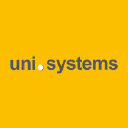
Member of the Technical Staff, Security Engineering, Cryptography
Job Description
Core Competencies
Technical Skills
Complexity and Impact of Work
Organizational Knowledge
Communication and Influence
You may be a fit for this role if you have:
Although not a requirement, bonus points if:



